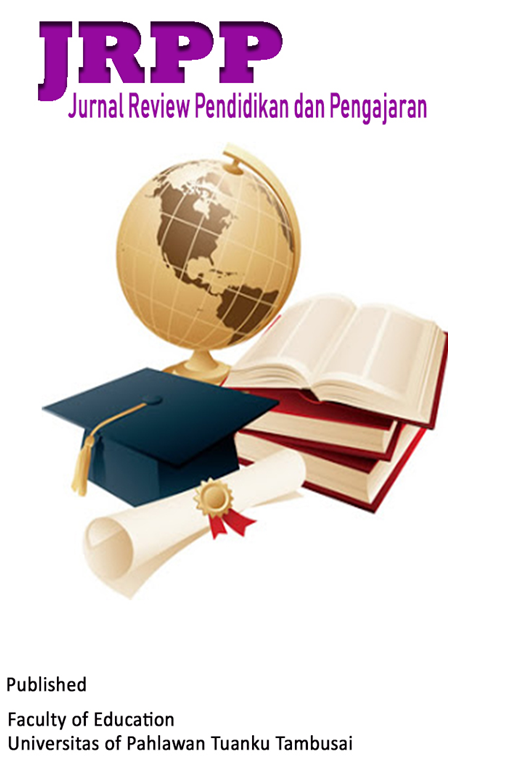ENHANCING QUR'ANIC TADABBUR SKILLS OF AL-KHOLIFAH STUDENTS THROUGH SEMITIC RHETORIC
DOI:
https://doi.org/10.31004/cdj.v5i5.35595Keywords:
Tadabbur, Semitic Rhetoric, Al-Qur’an, Al-‘AlaqAbstract
The rapid advancement of technology has resulted in a significant decline in the quality of tadabbur (deep contemplation) of the Qur'an, particularly among the younger generation. This decline is predominantly influenced by technological developments and the pervasive use of social media, which frequently divert children's attention from reflective and spiritual activities. These challenges are compounded by a lack of proficiency in classical Arabic and insufficient guidance in contextualizing Qur'anic messages within contemporary issues. In response to these issues, this community service initiative employs a Semitic rhetorical approach aimed at enhancing tadabbur skills at the Qur'anic Learning Center of Taman Pendidikan Al-Qur’an (TPA) Al-Kholifah Sekaran, Ponorogo, with a focus on QS. Al-'Alaq. The methodological framework for this program includes stages of preparation, implementation, and evaluation. The evaluation outcomes reveal a substantial improvement in students' comprehension of both tadabbur and Semitic rhetoric, with the average score increasing from 34% to 84%. These results demonstrate that the integration of a Semitic rhetorical approach not only deepens students' understanding of QS. Al-'Alaq but also strengthens their spiritual engagement with the Qur'an, providing a more solid foundation for addressing life's challenges. This program underscores the critical importance of incorporating comprehensive learning methodologies within Islamic education to effectively internalize Qur'anic values.References
Asnawi, A. R. (2018). Penerapan Semitic Rhetorical Analysis (SRA) Pada Surah Al-Qiyama>h. Mutawatir: Jurnal Keilmuan Tafsir Hadith, 8(1), 1–25.
Asnawi, A. R. (2021). Re-analyzing the Structure of Surah al-‘Alaq Using Semitic Rhetorical Analysis (SRA): A Critical Study on Cuypers’ Methodology of Analyzing Qur’anic Structure. QURANICA - International Journal of Quranic Research, 13(1), 165–194.
Asnawi, A. R., Aziz, H., & Haris, A. M. (2022). Investigating Cohesiveness of QS. Al-M?’idah: A Review on Michel Cuypers Implementation of Semitic Rhetorical Analysis (SRA). Jurnal Studi Ilmu-Ilmu al-Qur’an Dan Hadis, 23(1), 49–68. https://doi.org/10.14421/qh.2022.2301-03
Asnawi, A. R., & Idri, I. (2020). Examining Semitic Rhetoric: A Qur’anic Sciences Perspective. Jurnal Ushuluddin, 28(2), 127. https://doi.org/10.24014/jush.v28i2.9898
Ishaq, Z., & Hamid, I. M. (2021). Konsep dan Metode Tadabbur dalam Al-Qur’an. Ummul Qura: Jurnal Institut Pesantren Sunan Drajat (INSUD) Lamongan, 16(2), 132–141. https://doi.org/10.55352/uq.v16i2.535
Mulyani, R. (2024). Pentingnya Belajar Bahasa Arab Dalam Memahami Al-Qur’an Dan Hadits. Al-Ma’Lumat?: Jurnal Ilmu-Ilmu Keislaman, 2(1), 33–39. https://doi.org/10.56184/jam.v2i1.372
Nasaruddin, Ilham, Nurdiniawati, & Alimuddin. (2024). Pendampingan dan Peran TPQ Untuk Meningkatkan Baca Al-Qur’an di Dusun Soro Bali Desa Karampi. 2, 3(1), 29–41. https://doi.org/10.52266/taroa.v2i2.1120
Noornajihan Jaafar, & Sapora Sipon. (2022). Tadabbur al-Quran and its Implications for Mental and Emotional Well-Being under Movement Control Order Conditions. Revelation and Science, 12(1), 35–44.
Nurhayati, R. (2020). Pendidikan Anak Usia Dini Menurut Undang-Undang No, 20 Tahun 2003 Dan Sistem Pendidikan Islam. Al-Afkar: Jurnal for Islmic Studies, 3(2), 57–87.
Rosyid, A. (2023). Pembentukan Karakter Peserta Didik Melalui Pendidikan Berbasis Al-Qur’an. TADRIBUNA: Journal of Islamic Education Management, 2(2), 76–89. https://doi.org/10.61456/tjiec.v2i2.87
Supriadi, C. (2022). Mengenal Ilmu Tadabbur Al-Qur’an (Teori dan Praktek). Zad Al-Mufassirin, 4(1), 20–38.
Teyebu, E., Yahiji, K., Husain, R. T., & Daud, I. (2024). Ulumul Qur’an dalam Konteks Pendidikan. Jurnal Budi Pekerti Agama Islam, 2(4), 277–286.
Downloads
Published
How to Cite
Issue
Section
License
Copyright (c) 2024 Aqdi Rofiq Asnawi, Muhammad Dini Syauqi Al Madani, Mulyo Rizky Ramadhani

This work is licensed under a Creative Commons Attribution-ShareAlike 4.0 International License.















